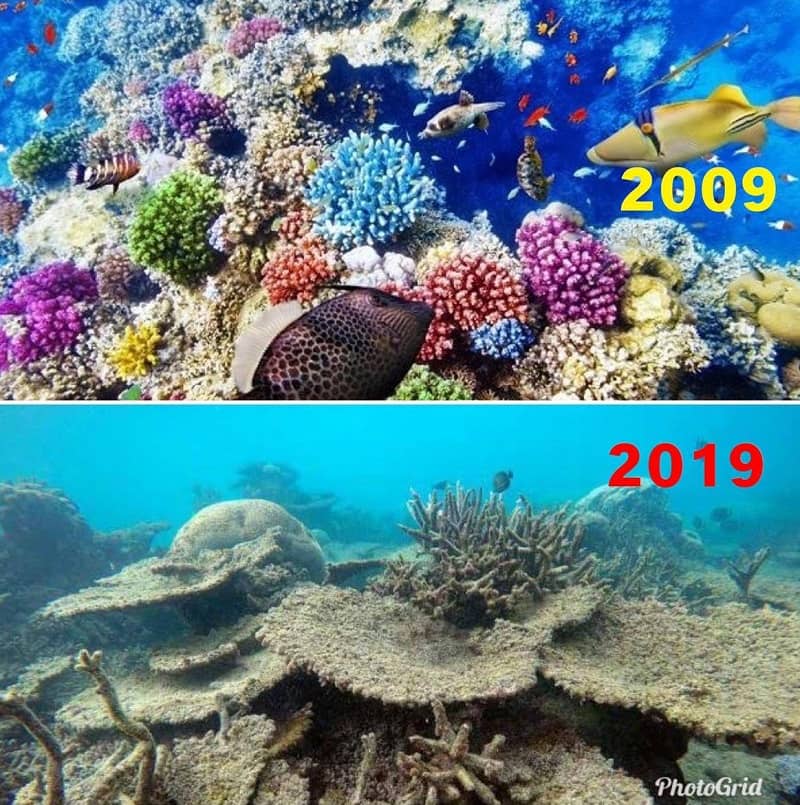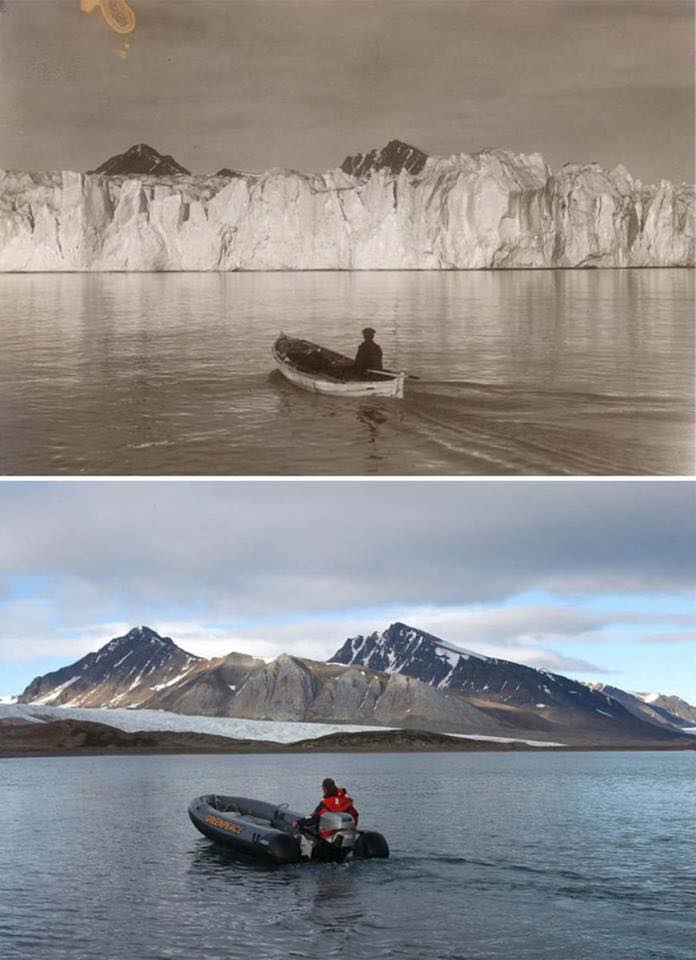What is Environmental Exploitation?
Environmental exploitation is the use of natural resources for the purpose of economic growth. In other words, it is cutting down trees, fishing, mining, or any action that extracts things from the environment to later be made into something to be sold to the public. This can be good for the concept of globalization – resource-rich countries can export their goods to other countries in need; but here’s the catch: the resources we continue to extract are expected to produce a product for most of the population of the world. As the population rises, the earth (unfortunately) stays the same size. This means that the demand for resources increases while we actually are able to produce less of them. This creates competition for companies to release more of a better, inexpensive product to appeal to the general public, while increasing the mass-transportation of goods. With increase of the product production, there needs to be workers. Often, we see companies exploit developing countries workers and environment to get what they want.
How Has Environmental Exploitation Affected us?
Most of the consequences of environmental exploitation have been evident in climate change. Ok, so you might not believe in climate change, and that’s okay. It’s just that that’s an absolutely, incredibly ridiculous, uneducated conspiracy theory-like opinion; but it is yours. You may continue to read if you value your future and that of others, or if you’re not angered by an opposing opinion.
200 000 Americans die early due to pollution each year.This is just in America. 7 Million people worldwide die each year because of domestic air pollution. Just think of the heath issues that come from cities in the Middle-East that are overrun with air pollution. You can visibly see the pollution in photographs and their air carries diseases that are harmful if inhaled, which is something you do when you breath! Something everyone must do, obviously. Eventually, this kind of pollution may affect people in North America if we continue down the same path. Another thing that is recent and interesting that illustrates how the earth has been impacted by climate change is the #10yearchallenge. Instead of posting selfies to see how much they’ve changed, activists have posted photos of one place in the earth 10 years ago versus now. The results are shocking.


Our world is deteriorating because of unnatural causes and has been for years. The rise in the average global temperature have caused ice caps to melt, leaving wildlife that resides there without their natural habitat. It is not only the ice caps that are affected, although, they are the most advertised. Deforestation is also something cause by environmental exploitation that is extremely serious. Firstly, deforestation causes the many animals that rely on trees to die because of loss of habitat. Remember the blue bird from the Disney movie Rio? It was just declared extinct in the wild because of habitat loss and degradation from unsustainable agriculture and logging. Secondly, in relation to deforestation, we seem to take away the only natural air filtration that we have. With increased pollution you would think that we need more trees. We’re quite literally killing ourselves, or in the least, damaging our lungs.

One more serious consequence that global warming is linked to is the rise in hurricanes and natural disasters. One study shows that the amount of category 4 and 5 hurricanes has risen by 80% in the past 30 years. Along with hurricanes there is flooding and the rise of tides which affects coastal cities dramatically. Not only have there been a record amount of strong natural disasters recently, but also a rise in tide. This has yet to have large negative implications on coastal areas but is estimated to in the near future.

How Will Environmental Exploitation Affect us?
As you now know, there are many negative consequences for the earth that have been seen as a result of environmental exploitation. It can only worsen as we progress through time. One huge headline that has been running through the news and through social media is that the UN warns we have 12 years to limit climate change. This means we have until only 2030 to make serious changes in our lifestyles, or standards of living worldwide will diminish. World temperatures must be kept between 1.5C-2C to prevent massive droughts, floods, extreme heat, and poverty for hundreds of millions of people. Essentially, the world will become a much less safe and a much less beautiful place to live if we continue with our bad habits.
Currently, we consume 20% more natural resources than can be replaced. This means that since we devour these resources at a higher rate than they can naturally replenish, they will soon be exhausted. Since our society relies so much on non-renewable source like wood, coal, oil, and gas, we would need 2.5 planets to supply ourselves with the resources we need by 2050. That is only 31 years away and is not far-fetched. Within our lifetimes the world will be experiencing a major shift in either how we adapt to changes for the better, or how we experience the destructive role of climate change and environmental exploitation. Within this short timeframe we will see prices in agricultural commodities rise as they become less plentiful, along with everything else.

What are Some Solutions?
It seems that the leaders that can make a difference in climate change are overwhelmed and don’t know where to start – or, they haven’t made an effort. First off, we need to treat climate change as the crisis it is. It is no longer a lingering problem we can slowly strive towards. We must act now if we don’t want to see irreversible damage within 12 years.
Next, the public needs to know it is a crisis (more have been recognizing this) and have access to things that can limit their carbon footprint, or that use fewer natural resources. Lowering prices on and making things that involve renewable energy can help the public strive towards a greener future; and it’s cheaper! Using scientific evidence to convince the general public to strive for a greener future is difficult. Not many people will understand the scientific words or care as much if it is not easily laid out for them. Instead, we can paint a picture of a future society that is green and progressive, it brings the issue closer to home rather than focussing on polar bears and melting glaciers. There should be incentives involved in changing the world or else frankly, people will not care. If we reward people in participating in the mitigation of adaption, it could help reduce environmental exploitation.

The rise of globalization has made a dent in our overall carbon footprint with increased emissions released from cars, boats, planes, etc. We should use globalization as a way to benefit our society by learning methods to benefit climate change. This way, leaders can stabilize the earth’s climate and grow the economy to help people in more places. We must learn to adapt our cities so that they can handle more severe storms. Some coastal cities which have never been affected before are expected to flood due to a rise of the sea level. If we can use tools from everywhere to help those cities, especially those in poverty, it can help reduce the risk of severe damage. Those that are in developing countries lack information about climate change and may not be able to protect themselves from potential harm. So, we need to be less self-centered as a nation and aid those in need. Particularly since Canada has low negative affects against their physical environment compared to other places.
What are Corporations Doing?
Whoever runs the main corporations of the world are money-hungry sociopaths. But that’s just my opinion! As society pressures them to change, many will not adapt because they are afraid of losing money. Many major fossil fuel companies know about the effects of global warming and continue to destroy the earth and rid it of its natural resources. On top of that, companies will use natural resources, then pollute the environment and the ocean which primarily affects those who live in poverty and already cannot afford clean water, and basic necessities.
One example of corporations not caring for the environment and only about their profit is when they dump garbage in the ocean. It is more convenient to dump something in the ocean than it is to worry about paying back landfill fees. The probability of being caught is low, and since they may only be caught few times, it would cost less to repay the fines than it would to pay for proper waste removal. Companies should be shut down for illegal dumping and harming of the environment. Will one company’s shutdown destroy the economy? NO, but dumping illegal waste will harm the environment, humans, and animals. If this is an issue that is known about, then why does the government cease to take action?

Some companies and nations have started to eliminate plastic straws and bags from their facilities, but this is only a start. Many of the largest contributors to waste have yet to fix any issues regarding climate change because they would lose money. We exploit natural resources, then exploit developing countries worker’s and put them at even more risk than they were already in for our own benefit. Sounds good?
Developing Countries
Climate change and environmental exploitation affects people who are vulnerable, like people in developing countries. In developing countries, they are first exploited by their employers who then contribute to global warming with high emissions and waste. Coast line cities in poverty have the worst luck when it comes to the changing earth. Many areas where housing commercialization will take place in developing countries are on flood-prone coastlines. These areas are affected by high tides, earthquakes, and other ocean-related natural disaster affect and they are the least able to prepare for such events.

Much of the poor’s wealth comes from agricultural related industries. With more and more natural disasters, it will continue to ruin the natural resources that those countries have to provide. With amplified global warming, our soil quality will diminish leaving some jobs where immigrants work underpaid jobs, unemployed instead. It seems that countries that leave the least carbon footprint and contribute the least to global warming are the most affected by it. The rich get richer, while the poor get poorer.
Despite the human race being at the highest point they’ve been at today in terms of technology, there are still many in poverty that are deeply affected by climate change. We refuse to adapt in our capitalist society. We live on the brink of a great discovery that climate change exists and is caused by humans, yet, we do little to fix what we have put countless time and effort (and money) into discovering.
Sources
“Are Category 4 and 5 Hurricanes Increasing in Number?” Weather Underground, http://www.wunderground.com/education/webster.asp.
Brunhuber, Kim. “The Doom-and-Gloom Climate Change Message Might Actually Make Things Worse | CBC News.” CBCnews, CBC/Radio Canada, 4 Jan. 2016, http://www.cbc.ca/news/technology/climate-change-science-communication-failure-1.3345524.
Iberdrola Corporativa. “What Are the Consequences of the Overexploitation of Natural Resources?” Iberdrola, http://www.iberdrola.com/top-stories/environment/overexploitation-of-natural-resources.
Rodin, Judith. “Climate Change Adaptation.” Vital Speeches of the Day, vol. 74, no. 12, Dec. 2008, pp. 547–553. EBSCOhost, search.ebscohost.com/login.aspx?direct=true&db=khh&AN=35388625&site=ehost-live.
“UN: Human Rights Crucial in Addressing Climate Change.” Human Rights Watch, 3 Dec. 2015, http://www.hrw.org/news/2015/12/03/un-human-rights-crucial-addressing-climate-change.
Watts, Jonathan. “We Have 12 Years to Limit Climate Change Catastrophe, Warns UN.” The Guardian, Guardian News and Media, 8 Oct. 2018, http://www.theguardian.com/environment/2018/oct/08/global-warming-must-not-exceed-15c-warns-landmark-un-report.
Willson, Judith. “Advantages & Disadvantages of Ocean Dumping.” Sciencing.com, Sciencing, 10 Jan. 2019, sciencing.com/advantages-disadvantages-ocean-dumping-8166298.html.